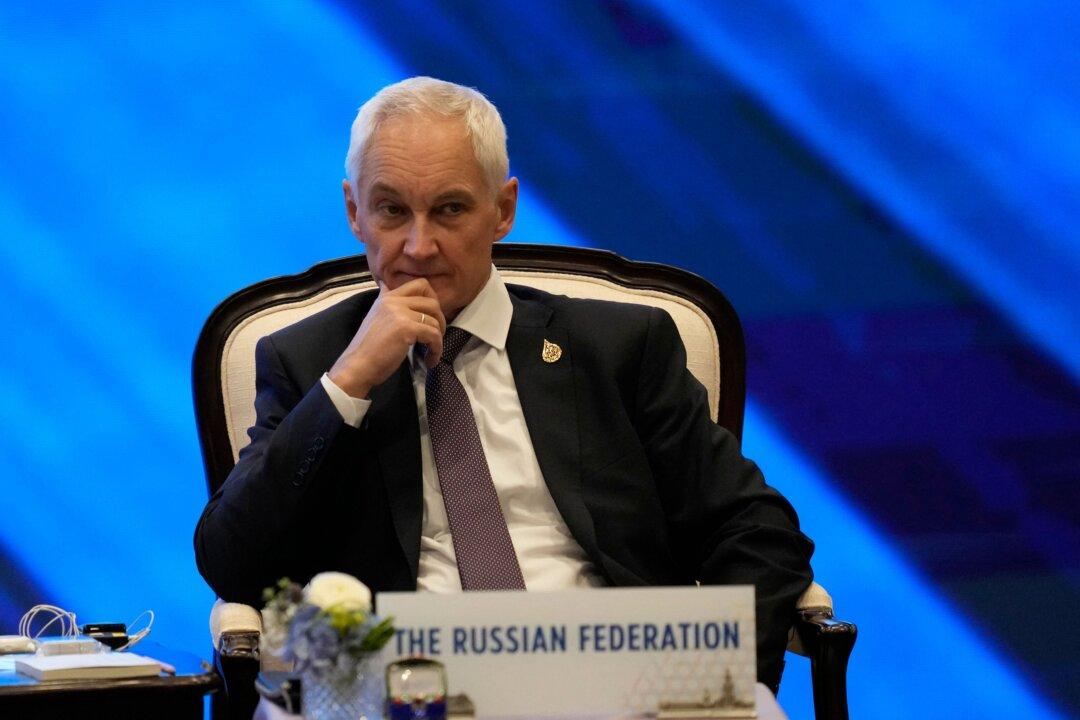China and Russia publicly reinforced their alliance as their top defense officials met in Beijing, rebuffing U.S. pressure ahead of an expected meeting between the leaders of the two countries in Russia next week.
Russian Defense Minister Andrei Belousov met on Oct. 15 with Zhang Youxia, vice chairman of the Chinese Communist Party’s Central Military Commission, a top military decision-making body chaired by Chinese leader Xi Jinping.




